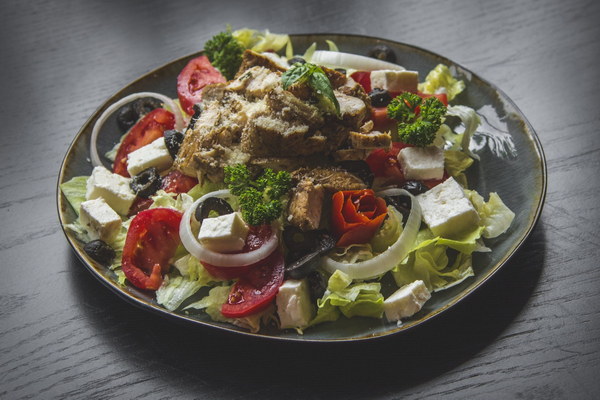Alkaline Diet A Natural Remedy for Acid Reflux and Improved Gut Health
In today's fast-paced world, where processed foods and unhealthy eating habits are the norm, many individuals suffer from acid reflux and other gastrointestinal issues. While medication can provide temporary relief, the root cause of these problems often lies in the diet. Enter the alkaline diet, a natural remedy that aims to balance the body's pH levels and promote overall health. In this article, we'll explore the benefits of the alkaline diet, how it can help alleviate acid reflux, and provide you with practical tips to adopt this healthy lifestyle.
What is the alkaline diet?
The alkaline diet is a dietary approach that emphasizes the consumption of foods that have an alkaline pH level. The pH scale ranges from 0 to 14, with 7 being neutral. Foods below 7 are considered acidic, while those above 7 are alkaline. The idea behind the alkaline diet is to consume more alkaline-forming foods and reduce the intake of acidic ones to maintain a balanced pH level in the body.
Benefits of the alkaline diet
1. Alleviates acid reflux: Acid reflux, also known as gastroesophageal reflux disease (GERD), occurs when stomach acid flows back into the esophagus, causing discomfort and heartburn. The alkaline diet helps neutralize stomach acid, reducing the occurrence of acid reflux symptoms.
2. Improves gut health: An alkaline diet promotes a healthy gut environment by encouraging the growth of beneficial bacteria. This, in turn, can improve digestion, reduce inflammation, and boost the immune system.
3. Enhances energy levels: By providing the body with essential nutrients and reducing the burden on the digestive system, the alkaline diet can help increase energy levels and improve overall vitality.
4. Promotes weight loss: Alkaline-forming foods, such as fruits, vegetables, and whole grains, are typically low in calories and high in fiber, making them ideal for weight loss and maintenance.
5. Reduces inflammation: Chronic inflammation is linked to various health conditions, including heart disease, diabetes, and cancer. The alkaline diet can help reduce inflammation by providing the body with essential nutrients and antioxidants.
6. Improves bone health: An alkaline diet can help maintain proper calcium levels in the body, which is essential for strong bones and teeth.
Foods to include in the alkaline diet
1. Fruits: Berries, apples, oranges, lemons, limes, and melons are all alkaline-forming fruits.
2. Vegetables: Dark leafy greens, such as spinach, kale, and Swiss chard, are excellent sources of alkaline minerals. Other vegetables like carrots, beets, and broccoli are also beneficial.
3. Nuts and seeds: Almonds, chia seeds, flaxseeds, and sunflower seeds are all alkaline-forming.
4. Whole grains: Brown rice, quinoa, and oats are alkaline-forming whole grains that provide essential nutrients.
5. Legumes: Lentils, chickpeas, and black beans are all alkaline-forming and rich in protein.
6. Proteins: Chicken, turkey, and tofu are alkaline-forming proteins that can be included in the diet.
Foods to avoid in the alkaline diet
1. Processed foods: These foods are typically high in acid-forming ingredients like refined sugars, preservatives, and artificial additives.
2. Red meat: Red meat is acidic and should be consumed in moderation on the alkaline diet.
3. Dairy: Dairy products are often acidic and can be challenging to digest. Opt for dairy alternatives like almond milk or coconut milk.
4. Refined grains: White flour and other refined grains are high in acid-forming properties.
5. Sweets: Sweets, particularly those made with refined sugars, are highly acidic and should be avoided.

6. Alcohol: Alcohol is acidic and can disrupt the body's pH balance.
Adopting the alkaline diet
To adopt the alkaline diet, start by gradually increasing the intake of alkaline-forming foods and reducing the consumption of acidic ones. Begin by making small changes, such as incorporating more fruits and vegetables into your daily meals, choosing whole grains over refined grains, and reducing your intake of processed foods and alcohol.
Remember that the alkaline diet is not a one-size-fits-all solution. It's essential to consult with a healthcare professional before making significant changes to your diet, especially if you have underlying health conditions.
In conclusion, the alkaline diet offers a natural way to alleviate acid reflux and improve overall health. By focusing on alkaline-forming foods and reducing acidic ones, you can achieve a balanced pH level in the body and enjoy the numerous benefits of this healthy lifestyle.









